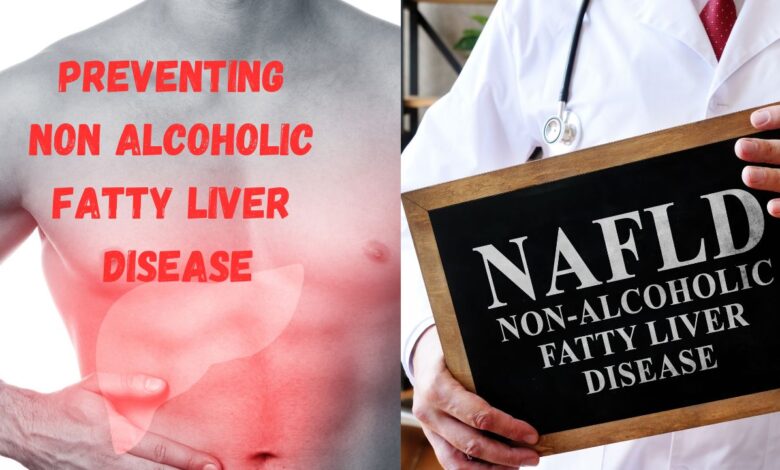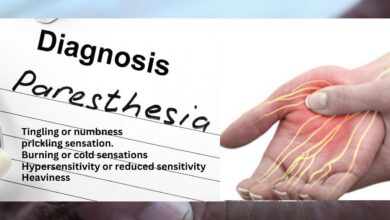Top 10 Potential Solution for Preventing Nonalcoholic Fatty Liver Disease and Enhancing Survival

Discover how optimizing lifestyle profiles can help prevent nonalcoholic fatty liver disease (NAFLD) and enhance survival. Learn about the impact of diet, exercise, weight management, and stress reduction on liver health.
Introduction to Nonalcoholic Fatty Liver Disease (NAFLD)
Nonalcoholic Fatty Liver Disease (NAFLD) is a common liver condition that affects many people worldwide. It happens when fat builds up in the liver of people who drink little or no alcohol. This disease can range from simple fatty liver (steatosis) to a more serious condition called nonalcoholic steatohepatitis (NASH), which can lead to liver damage, cirrhosis, or even liver cancer. NAFLD is linked to obesity, diabetes, and other health problems.
Fatty Liver Disease:Importance of Lifestyle in Managing NAFLD
Managing and preventing NAFLD is closely linked to lifestyle choices. The way we live, eat, exercise, and manage stress plays a crucial role in our liver’s health. By making healthy lifestyle choices, we can prevent the onset of NAFLD and improve the outcomes for those who already have the condition.
Fatty Liver Disease: Key Lifestyle Factors in Preventing and Managing NAFLD
- Healthy Diet:
- Balanced Nutrition: Eating a diet rich in fruits, vegetables, whole grains, and lean proteins can help reduce liver fat. Avoiding high-calorie and sugary foods is also important.
- Low Sugar Intake: High sugar consumption, especially from sugary drinks, is linked to fat buildup in the liver. Reducing sugar intake is essential.
- Healthy Fats: Including healthy fats like those found in olive oil, nuts, and fish can be beneficial. Avoiding trans fats and saturated fats is crucial.
- Regular Exercise:
- Physical Activity: Regular physical activity helps reduce liver fat and improves overall health. Aim for at least 150 minutes of moderate exercise, like walking or cycling, each week.
- Strength Training: Including strength training exercises can help build muscle, which helps the body manage sugar and fat better.
- Weight Management:
- Healthy Weight: Maintaining a healthy weight is key in preventing and managing NAFLD. Even a small amount of weight loss can have a big impact on liver health.
- Avoiding Obesity: Obesity is a major risk factor for NAFLD. Focusing on a balanced diet and regular exercise can help prevent obesity and its related health issues.
- Stress Management:
- Reducing Stress: Chronic stress can negatively impact liver health. Techniques such as meditation, yoga, or deep breathing exercises can help manage stress levels.
- Adequate Sleep: Ensuring enough sleep is important for overall health, including liver health. Aim for 7-9 hours of sleep per night.
Fatty Liver Disease:How Lifestyle Changes Help in NAFLD
Lifestyle changes can have a significant impact on preventing and managing NAFLD. Here’s how:
- Reducing Liver Fat:
- A healthy diet and regular exercise help reduce the amount of fat in the liver. This can prevent the progression of NAFLD and improve liver function.
- Improving Insulin Sensitivity:
- Better diet and physical activity improve the body’s response to insulin, reducing the risk of diabetes, which is closely linked to NAFLD.
- Lowering Inflammation:
- Healthy foods and regular exercise reduce inflammation in the body, which can prevent liver damage and other health problems.
- Enhancing Overall Health:
- Adopting a healthy lifestyle not only benefits the liver but also improves overall health, reducing the risk of heart disease, stroke, and other conditions.
Specific Dietary Recommendations
- Mediterranean Diet:
- The Mediterranean diet, which includes plenty of fruits, vegetables, whole grains, nuts, and healthy fats, has been shown to improve liver health.
- Limiting Red and Processed Meats:
- Reducing intake of red and processed meats can lower the risk of liver fat accumulation.
- Avoiding Sugary Drinks:
- Cutting out sugary beverages like sodas and fruit juices helps in reducing liver fat.
- Eating More Fiber:
- Foods high in fiber, such as fruits, vegetables, and whole grains, help improve digestion and can prevent fat buildup in the liver.
Importance of Physical Activity
- Types of Exercises:
- Both aerobic exercises (like walking, running, and swimming) and resistance training (like lifting weights) are beneficial for reducing liver fat.
- Consistency is Key:
- Regular exercise, even in moderate amounts, is more effective than occasional intense workouts. Finding a routine that is enjoyable and sustainable is important.
Weight Loss and NAFLD
- Setting Realistic Goals:
- Gradual weight loss is more effective and sustainable than rapid weight loss. Losing 5-10% of body weight can significantly improve liver health.
- Behavioral Changes:
- Making long-term lifestyle changes rather than short-term diets is crucial for maintaining a healthy weight and preventing NAFLD.
Role of Healthcare Providers
- Regular Check-ups:
- Regular visits to healthcare providers help monitor liver health and manage any other related health conditions.
- Personalized Advice:
- Healthcare providers can offer personalized advice based on individual health conditions and needs.
- Support and Resources:
- Access to dietitians, exercise physiologists, and support groups can provide additional help in making and sustaining lifestyle changes.
Potential Challenges and Solutions
- Time Constraints:
- Many people struggle to find time for exercise and preparing healthy meals. Planning and prioritizing health can help overcome this challenge.
- Lack of Knowledge:
- Not everyone knows what constitutes a healthy diet or effective exercise routines. Seeking information from reliable sources and healthcare providers can be beneficial.
- Motivation:
- Staying motivated can be difficult. Setting small, achievable goals and tracking progress can help maintain motivation.
Success Stories and Evidence
Many studies and real-life success stories demonstrate the effectiveness of lifestyle changes in preventing and managing NAFLD. For instance, individuals who adopted healthier eating habits and regular exercise routines saw significant improvements in their liver health and overall well-being.
Also Read:Ayurveda Tips For Everyday Wellness
Conclusion
Optimizing lifestyle profiles is a powerful and effective strategy for preventing nonalcoholic fatty liver disease and enhancing survival. By focusing on a healthy diet, regular exercise, weight management, and stress reduction, individuals can significantly improve their liver health and overall quality of life. Making these changes requires effort and commitment, but the benefits are well worth it. With the right support and resources, anyone can take steps towards a healthier lifestyle and a healthier liver.
The information provided in this article is for educational purposes only and is not intended as medical advice. Always consult with a healthcare professional or registered dietitian before making any changes to your diet or exercise routine, especially if you have existing health disease. The content is based on current research and understanding, but individual needs and responses to dietary changes can vary. The author and publisher are not responsible for any adverse effects or consequences resulting from the use of the information provided.




